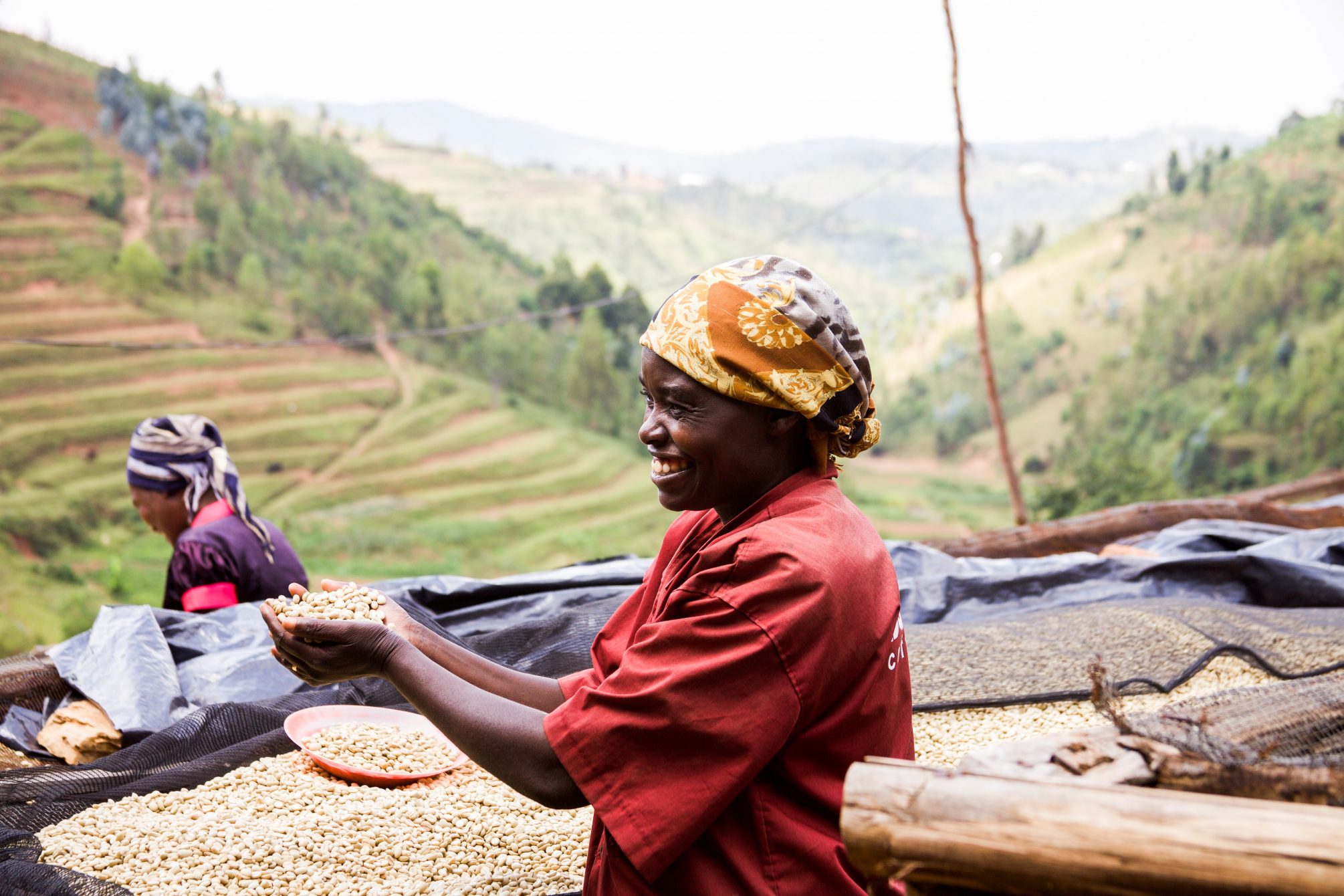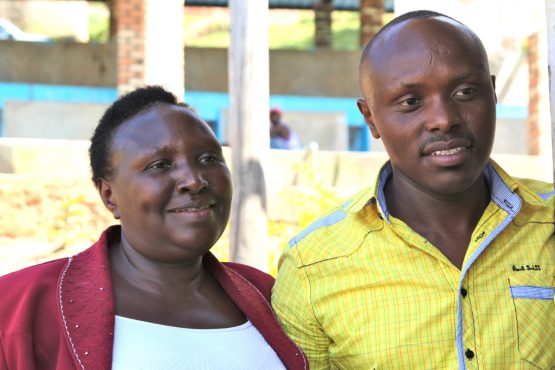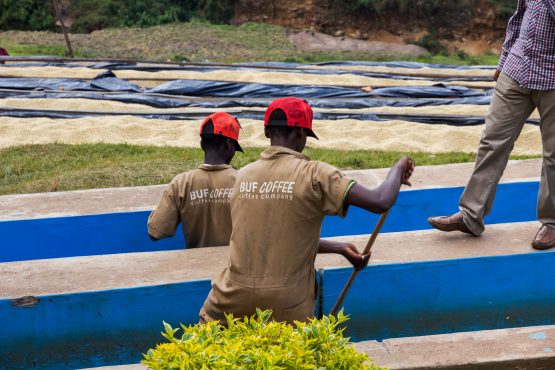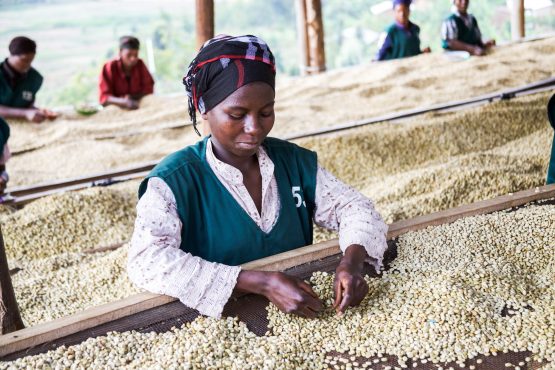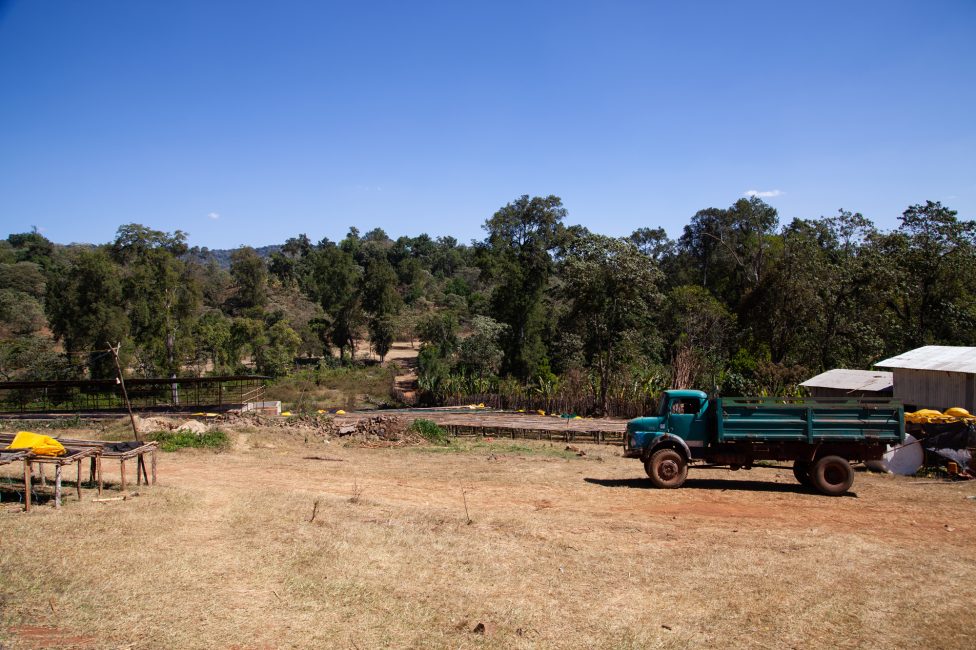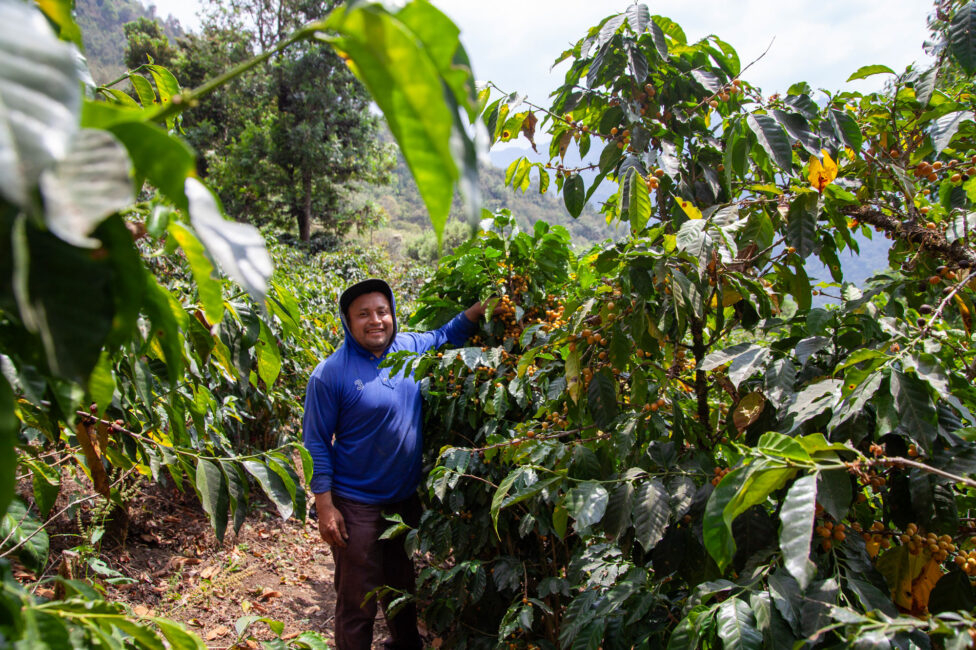Gitega
Passionfruit, melon, and complex fruit acids, with a maple sweetness and a lingering cocoa powder finish.
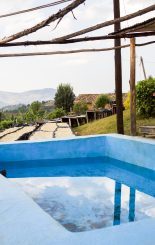 This special micro-lot comes from a specific collection point called Gitega which receives coffee cherries from a small group of farmers and delivers the cherries to the Remera Washing Station owned by Buf Coffee.
This special micro-lot comes from a specific collection point called Gitega which receives coffee cherries from a small group of farmers and delivers the cherries to the Remera Washing Station owned by Buf Coffee.
There are a number of collection points around Buf’s washing stations at which farmers are able to deliver cherry for collection by Buf. This means that the farmers do not have to transport their day’s pickings all the way to the washing station if they are situated too far away (most producers do not have cars and deliver their cherries by bike or foot). Buf has created the points so as the farmers can check in, weigh their coffees and get paid immediately for their produce. These pick-up points also ensure that recently picked cherries are quickly brought to the washing stations for processing, as time is of the essence when it comes to quality coffee.
Gitega is 10km away from the Remera washing station. Farmers bring their day’s pickings here, carrying bags weighing between 30 to 50 kilograms on top of their heads to the collection point. At Gitega, between one and five tons of cherry are received per day; this variance will depend on the time in the harvest period.
Gitega pick-up point is manned by Emmanuel Mugenzi and Ephron Sebatunzi, who are responsible for receiving cherry and paying the producers. At Remera, there is a report recording each farmer’s delivery, the date, and the weight of cherry they have delivered. This record must go with the cherry when it is delivered to Remera. The information is then entered onto the computer so that all lots can be traced back to their origin.
This Gitega is from a day lot picked and processed on 09 April 2016. We selected it based on its exceptional cup quality and were so impressed with the cup profile that we decided to keep this lot separate.
ABOUT REMERA WASHING STATION
The Remera washing station is managed by Elias Dusabeyezu, who has been manager at Remera since 2007. The warehouse is impeccably managed by Alex Dushimimana and quality is overseen by an inspirational woman called Angelique Muhawenimana, who started her career as a coffee sorter and now heads up quality control at both of Buf’s washing stations. Together, they ensure that the coffee is harvested and processed with care and that production standards are kept at the highest possible level. Remera provides jobs for 60-80 people during the peak harvest and staffs seven permanent positions. At the end of each season, any surplus profits are shared with the producers and washing station managers.
ABOUT BUF COFFEE
Buf Coffee was founded in 2000 by Epiphanie Mukashyaka, a dynamic businesswoman and a source of inspiration to countless other female entrepreneurs in Rwanda’s coffee sector and beyond. Buf is now managed by Mukashyaka—known to all as Epiphanie—and her sons, Samuel and Aloys, who have taken an active role in running and expanding the business. The name ‘Buf’ derives from ‘Bufundu’, the former name of the region in which its washing stations are located.
Epiphanie lost her husband, a child, and many extended family members in the horrific genocide in 1994. She was faced with the responsibility of caring for her seven surviving children and rebuilding their life. With a limited education and little money or support, Epiphanie, whose husband was a coffee farmer, decided to focus on coffee, and set about rebuilding and developing a business, and with it the local community. She started to learn more about speciality coffee with the assistance of the USAID-financed Partnership for Enhancing Agriculture in Rwanda through Linkages (PEARL) project, a transformational programme aimed at switching the focus of the Rwandan coffee sector from an historic emphasis on quantity to one of quality—and so opening up Rwanda to the far higher-earning specialty coffee market. The programme and its successor, Sustaining Partnerships to enhance Rural Enterprise and Agribusiness Development (SPREAD), have been invaluable in helping Rwanda’s small-scale coffee farmers rebuild their production in the wake of the genocide, and the world coffee crash, of the 1990s.
Epiphanie went on to establish Buf Coffee, and decided to build a washing station, with the help of the PEARL programme and a loan from the Rwandan Development Bank. ‘I came up with the idea to build this,’ she says, ‘and nothing was going to stop me’. She established Remera Washing Station in 2003 and Nyarusiza in 2005, and was the first woman in Rwanda to hold a privately owned company and produce specialty coffee. Her aim with the washing stations was to improve the quality of coffee by shifting the focus from producing commercial coffee to producing high quality specialty coffee. In doing so, she aimed to add value to her processed coffee in order to secure higher and more stable prices for coffee farmers in the region. As a result, she not only improved the livelihood of her family, but also improved those of her neighbour farmers and wider community, directly by increasing their income (through higher prices paid for their cherry) and, indirectly, by bringing important services like safe water and electricity to their villages via the establishment of washing stations.
Today Buf Coffee buys coffee cherries from as many as 7,000 smallholder farmers, including five different local cooperatives. Buf has very strong links with the local communities that supply it, providing jobs for hundreds of locals during peak harvest (May–June/July) and ten permanent positions year-round.
The majority of the small farmers that supply Buf Coffee in the area have an average of only 300 coffee trees each (less than a quarter of a hectare), and also use their land to cultivate crops like maize and beans to feed themselves and their families. Most of their income from the sale of coffee is used to send their children to school, pay for medical care, and for investment in livestock such as purchasing a cow for milk, which is then used at home and for sale locally.
Buf Coffee’s exceptional quality has been recognised year after year. It was awarded a prize in the 2007 Golden Cup; and placed in the Cup of Excellence in 2008, 2010, 2011, 2013, and 2014.
HOW COFFEE IS PROCESSED AT REMERA WASHING STATION
- The ripe cherries are picked by hand and then delivered to the washing station—on foot, by bike, and by trucks that pick up cherries from various pick-up points in the area.
- Before being pulped, the cherries are deposited into flotation tanks, where a net is used to skim off the floaters (less dense, lower grade cherries). The heavier cherries are then pulped the same day using a mechanical pulper that divides the beans into three grades by weight.
- The beans (in parchment) are then dry-fermented (in a tank with no added water) overnight for 8–12 hours. They are then sorted again using grading channels; water is sent through the channels and the lighter (i.e. lower grade) beans are washed to the bottom, while the heavier cherries remain at the top of the channel.
- The wet parchment is then soaked in water for around 24 hours, before being moved to pre-drying beds where they are intensively sorted for around six hours. This step is always done whilst the beans are still damp because the green (unripe) beans are easier to see. It is also always done in the shade to protect the beans from direct sunlight (which they have found helps to keep the parchment intact and therefore protects the bean better).
- The sorted beans are finally moved onto African drying beds in the direct sun to dry slowly over 10–20 days. During this time the coffee is sorted carefully for defects, and turned regularly to ensure the coffee dried evenly. It is also covered in the middle of the day when the sun is at its hottest.
- Once at 11–12% humidity, the coffee (still in its parchment) is stored in the washing station’s warehouse, in carefully labelled lots, until it is ready for export. The coffee is then sent to Rwanda’s capital, Kigali, to be dry-milled. Here the parchment is removed, and the beans are sorted again by hand and using machinery to remove any physical defects and loaded into a sealed shipping container, driven to port, and shipped to us!
We have been working with Buf Coffee since 2009, and we feel privileged to work with such a dynamic, passionate, and committed family in Rwanda. We hope you enjoy this beautiful coffee.
